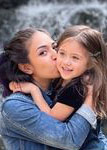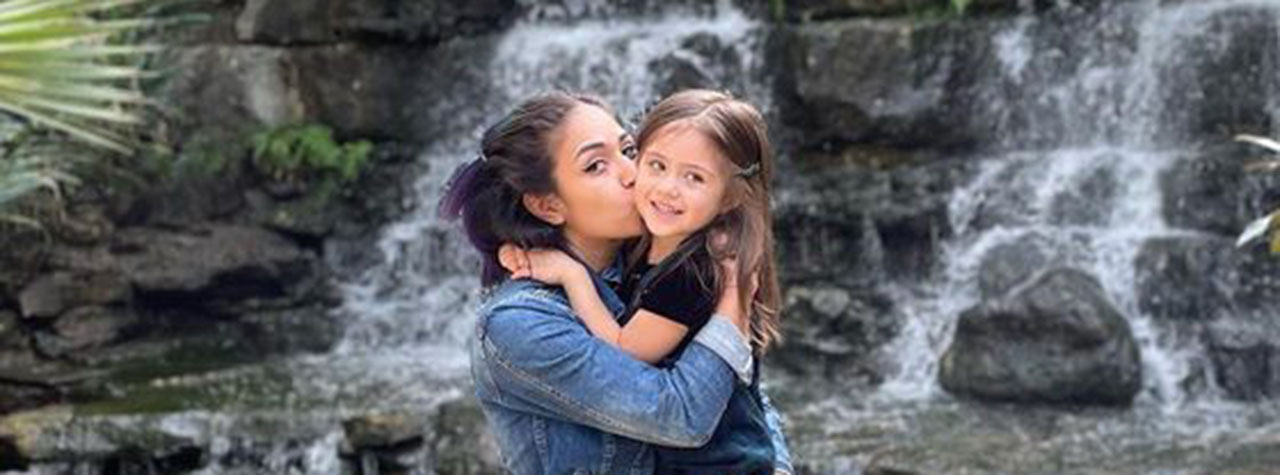Have you ever tried to explain your child’s food allergies to someone and you see the eye roll? Have you ever left a situation like a party because you didn’t feel your child was safe? Awkward, right? So you know how hard this can be, even for adults.
Read this story by Priscilla Gage, mom of an elementary school child who had the presence of mind and COURAGE to remove herself from a risky lunchroom situation. It underscores the importance of teaching our kids with food allergies about risks and what to do to keep themselves safe.
My daughter’s severe peanut allergy surfaced around the time she turned one. She had eaten peanut butter MANY times and it was one of her favorite snacks. One day, though, she developed hives around her mouth and face just minutes after eating peanut butter with bananas.
I immediately recognized what was going on and the seriousness because in the past I’d lived with someone with peanut allergy. But I was fortunate. When a food allergy is first discovered most people are not educated about it. They don’t know what they’re seeing or what to do. Why would they? Plus, epinephrine is rarely on hand in these situations.
I remember calling her doctor and not getting an answer, not even being able to reach a nurse. I left an urgent message. Then I called a friend who is a doctor and she advised giving children’s Benadryl ASAP and recommended the dose to use. The Benadryl worked almost immediately and my daughter’s symptoms cleared. Shortly after, her pediatrician returned my call and said she would have advised the same, telling me to continue to monitor her at home instead of taking her to the emergency room.
The next day I took my daughter to the pediatrician and she prescribed an EpiPen. I often think about this follow-up appointment. The diagnosis felt unbelievably hard and I felt so alone. All we were told was “to avoid peanuts” and “here’s an EpiPen” — One. Single. EpiPen. It took years to learn that there is so much more to food allergies than that:
- how to devise plans to keep my child safe in different situations,
- how to get past the social awkwardness of speaking up for my child when necessary,
- how to read food labels
- how to teach my child to see allergy risks around her and to know what to do.
I know allergens are everywhere. It’s not an allergen-free world. I know that I’m never going to be able to fully control our daughter’s environments. The people around us will do what they are going to do.
“My efforts to teach my daughter with food allergies…have taken root.”
We’ve focused on teaching our daughter how to keep herself safe. She knows to be vigilant about people eating peanuts near her and to move if she feels uncomfortable. She can read food labels herself and accepts the fact that she won’t always be eating the same things as her classmates. She knows to wash her hands before and after eating and that just using a wipe is not enough.
Recently I saw that my efforts to teach my daughter to protect herself have taken root. I am beyond proud of her (and more than a little relieved!)
Let me explain…
My daughter attends an elementary school that is supposed to be ‘nut free.’ We learned almost immediately that nut free policies mean nothing.
Since my daughter started school there last year there have been almost daily incidents of peanuts popping up in the lunchroom. I don’t get upset or voice complaints when we hear about peanuts being present because I know that our most important means of defense is teaching our daughter how to stay safe when peanuts could be or definitely are present.
Yesterday they had donuts in her class and fortunately my daughter was able to tell me ahead of time so I could send in allergy-safe cookies for her to eat instead. She came home and did not complain about not being able to have the donuts. Instead she told me how much she enjoyed her cookies. She showed me she could think ahead and make a plan to stay safe. Her acceptance and gratitude, her ability to see the glass half full, warmed my heart.
Today she advocated for herself when she felt uncomfortable that a classmate was eating a PB&J sandwich near her in the lunchroom. She spoke up for herself. Then she removed herself from the risky situation. Our supposedly ‘nut free’ school doesn’t have allergy tables so instead she went to finish her lunch at the nurse’s office, tucked safely away from the PB&J.
My daughter didn’t feel bad about missing out on lunch with friends. Instead she came home talking about how much fun she’d had at the nurse’s office. Again, her glass was half full. It was the nurse’s birthday and my daughter got to join a little celebration for the nurse. The nurse even let her have some of her party decorations and gave her stickers. I love the fact that our school nurse has a great relationship with our daughter and she’s on top of my daughter’s allergy.
I also received this text from her teacher:
“Hi. I’m so sorry to message you so many times today. I wanted to let you know that we had a peanut situation today at lunch. A student brought PB&J to lunch and Alice stood up for herself. She immediately let the lunch monitor know and she was sent to eat her lunch in the nurse’s office just in case something happened. She came back to class and was fine. No interaction with the student. I gave her a high five and a hug because I felt bad and I was so proud of her for standing up for herself. I am sending a notice today to the class reminding them again.”
I am so thankful we have a teacher who is supportive of our daughter’s allergy and cares enough to send out reminders about the nut free policy.

As an allergy mom I feel called to advocate for children with food allergies, as well as educate families who may be in the same position I once was. It can be so hard but you are not alone, allergy families. If you’d like to connect, DM me on Instagram.
 |
Priscilla Gage educates others about food allergies and spreads allergy awareness through her advocacy and writing. |
| About the Author: Priscilla Gage (@austinallergymom on IG) is a mother to a six-year-old peanut-allergic daughter residing in Austin, Texas. When her young daughter was first diagnosed with her allergy, she and her family knew almost nothing about food allergies. In the past five years she has made it her mission to learn everything she can about food allergies and how to keep her daughter safe. | |
Image: Courtesy of Priscilla Gage


